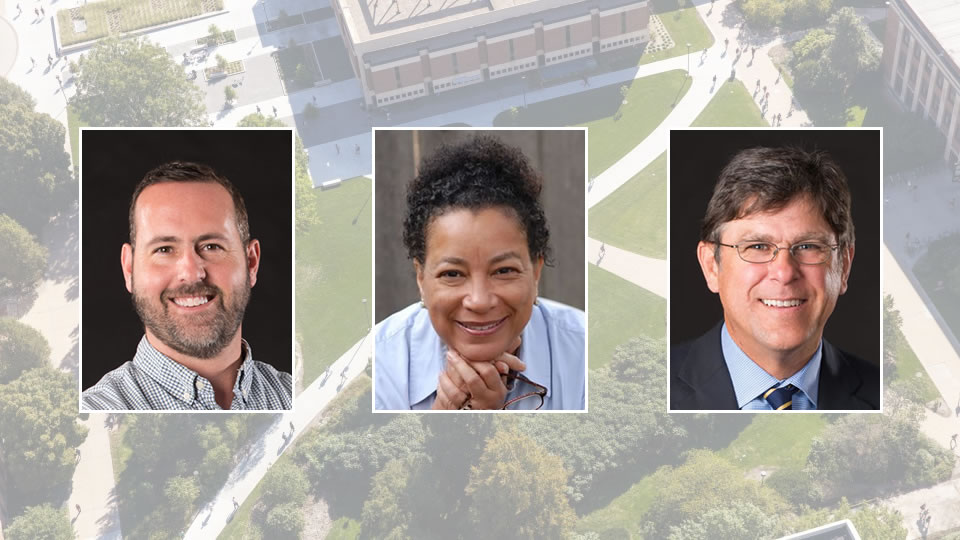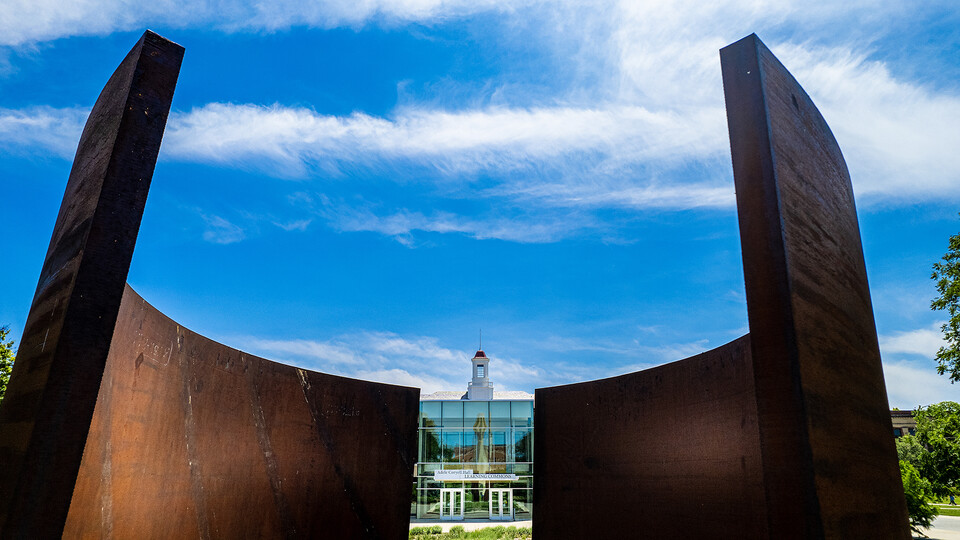
Nebraska’s Michael Burton, Kwakiutl Dreher, and William Thomas are ready to tell another story of the historical struggle over slavery.
With a $200,000 grant from the National Endowment for the Humanities, they will develop “The Bell Affair: A Film Reframing American Slavery and Freedom,” a one-hour documentary set in 1830s Washington, D.C. at a pivotal moment in the national struggle over slavery.
“The project tells the story of Daniel Bell, who launched a lawsuit to make his family free just as a labor strike, a lynch mob, and a race riot erupted in the nation's capital in the late summer of 1835,” Thomas, professor of history and John and Catherine Angle Chair in the Humanities, said.
The Bell Affair will be set in Washington, D.C., about family, politics, slavery, and the making and meaning of freedom at a pivotal moment in the national struggle over slavery. See https://t.co/v52dTtkAgL #storyboard #animatics @burtonworldart @drdreher pic.twitter.com/SAC1BhrOK0
— William G. Thomas (@wgthomas3) January 10, 2019
The film is the second in a planned series of animated historical films. The first film, the award-winning “Anna,” told the story of Ann Williams, who jumped from a third-story window to escape the fate of being sold to another slave owner and separated from her family. Combining live-action with rotoscope animation, it was a proof-of-concept project that set the stage for this film.
Dreher, associate professor of English and ethnic studies, wrote the screenplay for "Anna" and co-wrote the screenplay for this film with Thomas—both based on research from his “O Say Can You See” online archive of freedom suits.
"For 'Anna,' I concentrated on Anna—just Anna," she said. "'The Bell Affair' is a feature-length production that involves a nimiety of characters. When we began our roundtable discussion for 'The Bell Affair,' Will and I understood that a central collaboration would have to occur. It is a smooth partnership especially since history is my minor discipline of research, so Will and I sync in our vision of the script."
"Anna" was a shorter film, but Dreher said she was able to accomplish what she wanted to do.
"I knew exactly what we were doing with Anna, so I focused on the script in terms of what would accommodate the time frame."
Dreher will also be directing the film. They will again collaborate with Michael Burton, an animator and assistant professor of practice in textiles, merchandising and fashion design in the College of Education and Human Sciences.
This film is one of 215 humanities projects across the country supported by the most recent round of NEH funding.
“As the nation prepares to commemorate its 250th anniversary in 2026, NEH is proud to help lay the foundations for public engagement with America’s past by funding projects that safeguard cultural heritage and advance our understanding of the events, ideas, and people that have shaped our nation,” NEH chairman Jon Parrish Peede said in a press release.
In addition to producing, promoting, and distributing the film, the funding will be used to develop a website with companion materials and design teaching programs with original source documents. Thomas said his team aims to distribute the film through educational partners, film festivals, and broadcast channels. They also want to organize community-hosted screenings that spark conversations.
"I envision The Bell Affair circulating in film festivals and other socio-cultural communities," Dreher said. "I see being used as a tool for discovery about our past and, more specific, generating more insights into freedom making as enacted by enslaved people."
“Our goal [with the series] is to extend the historical imagination to recover these stories, showing how ordinary people used the law to define their rights and how their actions intersected with the nation's highest politics,” Thomas said. “Bell privately negotiated for the freedom of his wife and children, but his plans were upended. In the public trials that followed, the supremacy of the law, the freedom of the press, and the fate of an innocent man hung in the balance.
“The film and website will tell the complete story of the Bells for the first time, dramatize the historical complexity of their enslavement, and place their resistance to enslavement in its full context.”


